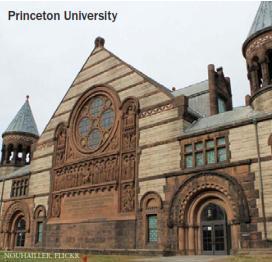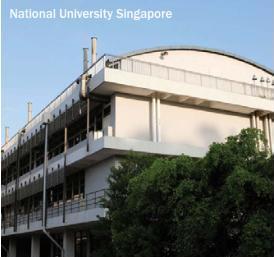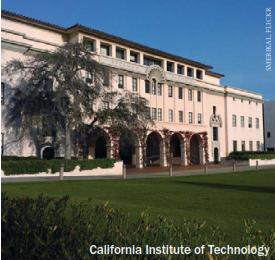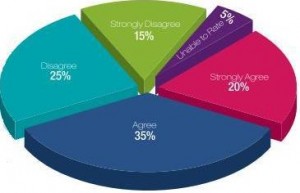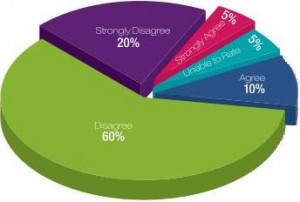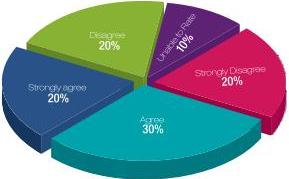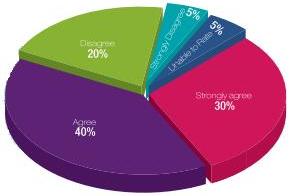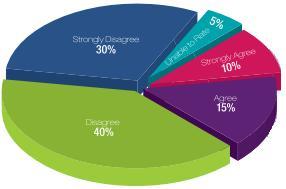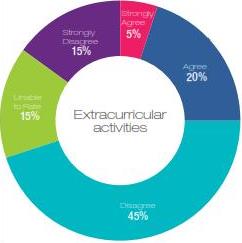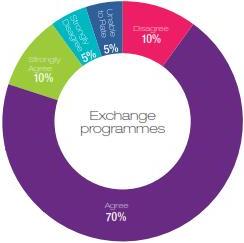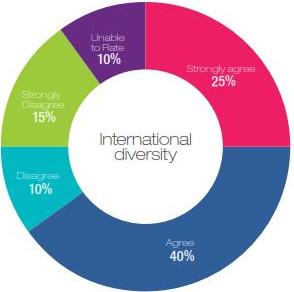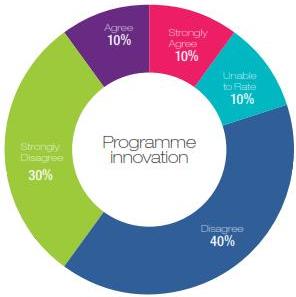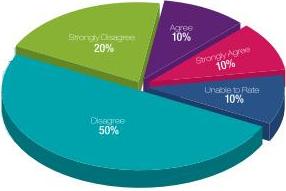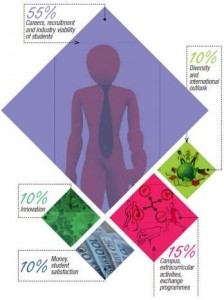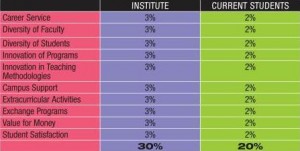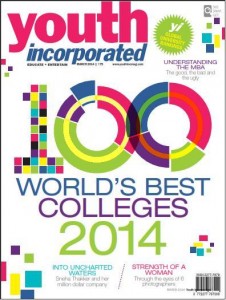 Having conducted expansive research by contacting 1,300 institutes and over 8,000 recruiters around the world, Youth Inc has ranked the top 100 universities in the world to pursue an undergraduate programme
Having conducted expansive research by contacting 1,300 institutes and over 8,000 recruiters around the world, Youth Inc has ranked the top 100 universities in the world to pursue an undergraduate programme
Welcome to the Youth Incorporated, Education Times and Rediff.com Global University Rankings 2014. Continuing with our annual rankings for the best global universities, we have conducted extensive research work spanning several months to sort through voluminous raw data and bring out a finished analysis that is practical and can be instrumental in the selection process for those looking to enrol in the best programmes around the world.
We contacted 1,300 institutes to gauge their responses to unbiased questions that would help us evaluate the quality of the educational experience they provide. We also accumulated responses from the current students of the universities. In addition, we procured information from over 8,000 Media Partner recruiters that have previously recruited graduates from the institutes considered in the surveys. Once the data was accumulated, we broke down the information by placing emphasis on the most important criteria a student considers when enrolling in an institute. Factors such as value for money, student and recruiter satisfaction, infrastructure and facilities, teaching methodologies and much more were considered to rank the institutes.
This painstaking method was used to bring out the ranking of the top 100 universities worldwide. We were also able to provide rankings based on regional distribution and streams of study. Finally, the ranking for this year was placed against our previously conducted annual rankings to determine the performance of the institutes over the years.
TOP 100 UNIVERSITIES
| RANK | INSTITUTION | COUNTRY | SCORE | 2013 RANK | 2012 RANK |
| 1 | Harvard University | USA | 100 | 1 | 1 |
| 2 | Stanford University | USA | 99.9 | 2 | 2 |
| 3 | University of Pennsylvania | USA | 99.8 | 3 | 7 |
| 4 | University of Oxford | UK | 99.4 | 5 | 4 |
| 5 | Massachusetts Institute of Technology |
USA | 99.3 | 4 | 3 |
| 6 | University of Chicago | USA | 99.2 | 6 | 5 |
| 7 | Yale University | USA | 99.1 | 7 | 6 |
| 8 | Cornell University | USA | 99 | 10 | 10 |
| 9 | Columbia University | USA | 98.5 | 8 | 8 |
| 10 | Princeton University | USA | 98.3 | 9 | 11 |
| 11 | California Institute of Technology |
USA | 98 | 12 | 12 |
| 12 | Imperial College London | UK | 97 | 13 | 9 |
| 13 | London School of Economics | UK | 96.8 | 16 | 20 |
| 14 | University of Cambridge | UK | 96.3 | 11 | 18 |
| 15 | University of Tokyo | JAPAN | 96 | 17 | 17 |
| 16 | Brown University | USA | 95.7 | 14 | 24 |
| 17 | University of Waterloo | Canada | 95.4 | 15 | – |
| 18 | University of California Los Angeles |
USA | 95.3 | 21 | 23 |
| 19 | Carnegie Mellon University | USA | 95 | 22 | 22 |
| 20 | University of Michigan Ann Arbor |
USA | 94 | 20 | 15 |
| 21 | New York University | USA | 93.4 | 23 | 25 |
| 22 | University of Melbourne | Australia | 93.2 | 24 | 19 |
| 23 | National University Singapore |
Singapore | 91.1 | 26 | 29 |
| 24 | Indian Institute of Technology Bombay |
INDIA | 93 | 19 | 31 |
| 25 | IE University | Spain | 92.8 | 29 | 37 |
| 26 | École Normale Supérieure | France | 92.6 | 25 | 21 |
| 27 | Indian Institute of Technology Delhi |
INDIA | 92.4 | 27 | – |
| 28 | Northwestern University | USA | 92.1 | 18 | 14 |
| 29 | Hong Kong University of Science & Tech |
China | 92 | 33 | 35 |
| 30 | University of California Berkeley |
USA | 91.8 | 31 | 30 |
| 31 | Chinese University of Hong Kong |
China | 91.3 | 30 | 27 |
| 32 | Ludwig-Maximilians- Universität München |
Germany | 91 | 32 | 32 |
| 33 | Duke University | USA | 90.7 | 28 | 28 |
| 34 | Dartmouth College | USA | 90.5 | 38 | 41 |
| 35 | Johns Hopkins University | USA | 90.2 | 34 | 34 |
| 36 | École Polytechnique Fédérale de Lausanne |
Switzerland | 90.1 | 36 | 36 |
| 37 | University College London | UK | 90 | 37 | 26 |
| 38 | Emory University | USA | 89.6 | 35 | 33 |
| 39 | Universidade de São Paulo | Brazil | 89.1 | 41 | 47 |
| 40 | University of Texas at Austin | USA | 88.4 | 45 | 45 |
| 41 | University of Virginia | USA | 88.1 | 39 | 43 |
| 42 | University of Zürich | Switzerland | 87.7 | 42 | 39 |
| 43 | Kings College London | UK | 87.5 | 43 | 40 |
| 44 | Rice University | USA | 87.2 | 44 | 44 |
| 45 | University of Copenhagen | Denmark | 87 | 40 | 38 |
| 46 | University of British Columbia | Canada | 86.4 | 46 | 42 |
| 47 | Technische Universität München |
Germany | 86.1 | 50 | 53 |
| 48 | Peking University | China | 85.7 | 47 | 52 |
| 49 | University of Helsinki | Finland | 85.3 | 51 | 51 |
| 50 | HEC | France | 85 | 53 | 55 |
| 51 | University of Sydney | Australia | 84 | 52 | 46 |
| 52 | Universität Heidelberg | Germany | 83 | 49 | 50 |
| 53 | Pontificia Universidad Católica de Chile |
Chile | 82.4 | 48 | 48 |
| 54 | Nanyang Technological University |
Singapore | 85 | 56 | 61 |
| 55 | Universidad de Buenos Aires | Argentina | 81 | 55 | 56 |
| 56 | Fudan University | China | 80 | 57 | 69 |
| 57 | University of Southern California |
USA | 79.8 | 61 | 57 |
| 58 | Australian National University |
Australia | 79.5 | 58 | 58 |
| 59 | Tokyo Institute of Technology | JAPAN | 79.2 | 59 | 66 |
| 60 | Seoul National University | Korea | 79 | 60 | 60 |
| 61 | University of Warwick | UK | 78 | 62 | 75 |
| 62 | Vanderbilt University | USA | 77 | 54 | 49 |
| 63 | University of Auckland | New Zealand |
76 | 72 | 76 |
| 64 | University of Wisconsin Madison |
USA | 75 | 63 | 62 |
| 65 | Monash University | Australia | 74 | 65 | 67 |
| 66 | University of Birmingham | UK | 73.1 | 66 | – |
| 67 | Erasmus University Rotterdam |
Netherlands | 72.5 | 67 | 70 |
| 68 | École Polytechnique | France | 72 | 64 | 71 |
| 69 | University of New South Wales |
Australia | 71 | 69 | 59 |
| 70 | University of Edinburgh | UK | 70 | 70 | 64 |
| 71 | University of North Carolina Chapel Hill |
USA | 69 | 71 | 65 |
| 72 | Universidad Nacional Autónoma de México |
Mexico | 68 | 68 | 68 |
| 73 | Paris Dauphine University | France | 67 | 85 | 85 |
| 74 | Tsinghua University | China | 66.7 | 74 | 72 |
| 75 | University of Surrey | UK | 66.2 | 84 | – |
| 76 | University of Queensland | Australia | 66 | 77 | 77 |
| 77 | Georgia Institute of Technology | USA | 65 | 76 | 82 |
| 78 | Tohoku University | JAPAN | 64 | 73 | 73 |
| 79 | National Taiwan University | Taiwan | 63 | 78 | 78 |
| 80 | Uppsala University | Sweden | 62 | 75 | 74 |
| 81 | University of Rochester | USA | 61.8 | 80 | 84 |
| 82 | University of Groningen | Netherlands | 61.4 | 81 | 80 |
| 83 | University of Bern | Switzerland | 61 | 82 | 81 |
| 84 | University of Adelaide | Australia | 60.9 | 83 | 83 |
| 85 | Ecole Centrale de Paris | France | 60.5 | 86 | 88 |
| 86 | Indian Institute of Technology Kanpur |
INDIA | 60.2 | 79 | |
| 87 | University of York | UK | 60 | 91 | 94 |
| 88 | Ramon Llul University/ESADE | Spain | 59 | NEW | – |
| 89 | University of Washington | USA | 58 | 89 | 89 |
| 90 | University of Sciences Philadephia |
USA | 57 | 95 | – |
| 91 | Purdue University | USA | 56.7 | 96 | 92 |
| 92 | Washington University St.Louis |
USA | 56.2 | 92 | 87 |
| 93 | University of Pittsburg Bradford |
USA | 56 | 93 | – |
| 94 | University of Amsterdam | Netherlands | 55 | 90 | 86 |
| 95 | Stockholm University | Sweden | 54 | 87 | 91 |
| 96 | Heriot-Watt University | UK | 53 | 97 | – |
| 97 | University of Delhi | INDIA | 52 | 99 | – |
| 98 | Bradley University | USA | 51.5 | 98 | |
| 99 | Grenoble Ecole de Management |
France | 51 | 100 | – |
| 100 | University of Hawaii Hilo | USA | 50 | NEW | – |
By sifting through information collected from students, faculty and recruiters of 1,300 institutes across the world, Youth Inc gives you a ranking of the top 100 institutes in the world
HOW HAVE THE INSTITUTES FARED COMPARED TO 2012 AND 2013?
Placing the 2014 top 100 ranking against those we conducted in 2012 and 2013, a comparison of the performance of the institutes over the years is clearly visible. Harvard University has retained its pole position at the top of the rankings with a perfect score that it managed to attain in the previous years as well. Stanford University and University of Pennsylvania rank second and third respectively with near perfect scores as well. The top 10 of last year have managed to stay in the top of the table with a few universities improving on their previous rank and a few dropping by a rank or two. The top 10 continues to be dominated by American institutes with the only exception being University of Oxford which has moved up to rank 4. When set against the surveys of the previous years, most universities in the top 100 seem to have a consistent performance with a similar ranking over the years.
THE INDIA STORY
The four Indian institutes that appear in the ranking this year are the same institutes that figured last year as well. The only difference is how much they’ve slipped in their scores and ranks. This disconcerting outcome notwithstanding, we again question why no institutes other than the IITs (save for University of Delhi) are comparable to international universities. We were hopeful last year about educational reforms in the country, but it seems in one year the reforms have had no effect on India’s higher education institutes.
As recently as three years ago, the government’s favourite phrase was ‘knowledge economy’ – build an economy on the foundations of world class education. This plan seems to have gone pear-shaped. According to UNESCO’s 11th Education For All Global Monitoring Report, which was released in the last week of January and reported by Hindustan Times, 90% of children from poor families remain illiterate despite completing four years of school education. At a higher level, if the National Skill Report 2014 (prepared by the CII, PeopleStrong and Wheebox) is anything to go by, about 70% of the graduates produced by Indian institutes are unemployable.
Contrary to what the government’s spin doctors would like us to believe, the standard of higher education in India is sliding. Perhaps to salvage what is left of it, the FICCI (Federation of Indian Chambers of Commerce and Industry), has developed a road map for improving the state of education in the country. Vision 2030, as written about by T.V. Mohandas Pai, Chairman of the FICCI Higher Education Committee, envisions that by the year 2030 “50% of our youth would be in the higher education system, at least 23 Indian universities would be among the global top 200 and 6 Indian intellectuals would have been awarded the Nobel Prize. Our country would be among top 5 countries globally in cited research output, its research capabilities boosted by annual R&D spends totalling over $140 billion.”
This is a lofty aim indeed, but it cannot be achieved without the government’s participation. And here’s hoping their participation is more than just some ‘reforms’ that see no results.
BEST REGIONAL UNIVESITIES 2014
Top US Universities
| Rank | Institution | Country |
| 1 | Harvard University | USA |
| 2 | Stanford University | USA |
| 3 | University of Pennsylvania | USA |
| 4 | Massachusetts Institute of Technology | USA |
| 5 | University of Chicago | USA |
| 6 | Yale University | USA |
| 7 | Cornell University | USA |
| 8 | Columbia University | USA |
| 9 | Princeton University | USA |
| 10 | California Institute of Technology | USA |
Top Australian Universities
| Rank | Institution | Country |
| 1 | University of Melbourne | Australia |
| 2 | University of Sydney | Australia |
| 3 | Australian National University | Australia |
| 4 | Monash University | Australia |
| 5 | University of New South Wales | Australia |
| 6 | University of Queensland | Australia |
| 7 | University of Adelaide | Australia |
Top European Universities
| Rank | Institution | Country |
| 1 | University of Oxford | UK |
| 2 | Imperial College London | UK |
| 3 | London School of Economics | UK |
| 4 | University of Cambridge | UK |
| 5 | IE University | Spain |
| 6 | École Normale Supérieure | France |
| 7 | Ludwig-Maximilians- Universität München |
Germany |
| 8 | École Polytechnique Fédérale de Lausanne |
Switzerland |
| 9 | University College London | UK |
| 10 | University of Zürich | Switzerland |
Top Asian Universities
| Rank | Institution | Country |
| 1 | University of Tokyo | Japan |
| 2 | National University Singapore | Singapore |
| 3 | Indian Institute of Technology Bombay | India |
| 4 | Indian Institute of Technology Delhi | India |
| 5 | Hong Kong University of Science & Technology |
China |
| 6 | Chinese University of Hong Kong | China |
| 7 | Peking University | China |
| 8 | Nanyang Technological University | Singapore |
| 9 | Fudan University | China |
| 10 | Tokyo Institute of Technology | Japan |
TOP UNIVERSITIES IN DIFFERENT STREAMS
LIFE SCIENCES & MEDICINE
| Rank | Institution | Country |
| 1 | Harvard University | USA |
| 2 | Johns Hopkins University | USA |
| 3 | University of Cambridge | UK |
| 4 | Stanford University | USA |
| 5 | Yale University | USA |
| 6 | University of Oxford | UK |
| 7 | Imperial College London | UK |
| 8 | Cornell University | USA |
| 9 | University of California Berkeley | USA |
| 10 | University of Waterloo | Canada |
PURE SCIENCES
| Rank | Institution | Country |
| 1 | Harvard University | USA |
| 2 | Stanford University | USA |
| 3 | University of Cambridge | UK |
| 4 | Massachusetts Institute of Technology | USA |
| 5 | Princeton University | USA |
| 6 | University of Oxford | UK |
| 7 | National University Singapore | Singapore |
| 8 | Cornell University | USA |
| 9 | Yale University | USA |
| 10 | University of Tokyo | Japan |
ART & HUMANITIES
| Rank | Institution | Country |
| 1 | Harvard University | USA |
| 2 | Stanford University | USA |
| 3 | University of Cambridge | UK |
| 4 | Princeton University | USA |
| 5 | Yale University | USA |
| 6 | University of Oxford | UK |
| 7 | National University Singapore | Singapore |
| 8 | Columbia University | USA |
| 9 | University of Tokyo | Japan |
| 10 | University of Waterloo | Canada |
BUSINESS PROGRAMMES
| Rank | Institution | Country |
| 1 | Stanford University | USA |
| 2 | Harvard University | USA |
| 3 | National University Singapore | Singapore |
| 4 | University of Oxford | UK |
| 5 | IE University | Spain |
| 6 | Columbia University | USA |
| 7 | London School of Economics | UK |
| 8 | University of Cambridge | UK |
| 9 | Massachusetts Institute of Technology | USA |
| 10 | University of Michigan Ann Arbor | USA |
ENGINEERING PROGRAMMES
| Rank | Institution | Country |
| 1 | California Institute of Technology | USA |
| 2 | Massachusetts Institute of Technology | USA |
| 3 | Imperial College London | UK |
| 4 | Stanford University | USA |
| 5 | National University Singapore | Singapore |
| 6 | University of Oxford | UK |
| 7 | Cornell University | USA |
| 8 | Columbia University | USA |
| 9 | Indian Institute of Technology Delhi | India |
| 10 | Indian Institute of Technology Bombay | India |
WHAT STUDENTS WANT
While conducting the analysis of the best universities in the world, we ranked them according to the individual factors students consider to be a bench mark of a prestigious university. Here are the ratings according to the responses of current students of the institutes
Overall, I am very satisfied with my institute
STUDENT SATISFACTION
| Rank | Institution | Country |
| 1 | Cornell University | USA |
| 2 | Stanford University | USA |
| 3 | Harvard University | USA |
| 4 | Brown University | USA |
| 5 | University of Pennsylvania | USA |
| 6 | University of Oxford | UK |
| 7 | École Normale Supérieure | France |
| 8 | IE University | Spain |
| 9 | Princeton University | USA |
| 10 | Columbia University | USA |
I applied for and received a good scholarship to attend my institution
BEST VALUE FOR MONEY
| Rank | Institution | Country |
| 1 | Indian Institute of Technology Bombay |
India |
| 2 | Indian Institute of Technology Delhi |
India |
| 3 | National University Singapore | Singapore |
| 4 | Yale University | USA |
| 5 | Hong Kong University of Science & Technology |
China |
| 6 | Universität Heidelberg | Germany |
| 7 | Cornell University | USA |
| 8 | University of Tokyo | Japan |
| 9 | Columbia University | USA |
| 10 | IE University | Spain |
Most teaching faculty often use innovative ways to teach subjects
INNOVATION IN TEACHING METHODOLOGIES
| Rank | Institution | Country |
| 1 | Stanford University | USA |
| 2 | Harvard University | USA |
| 3 | Northwestern University | USA |
| 4 | Princeton University | USA |
| 5 | Brown University | USA |
| 6 | Dartmouth College | USA |
| 7 | Columbia University | USA |
| 8 | École Normale Supérieure | France |
| 9 | Ludwig-Maximilians-Universität München |
Germany |
| 10 | New York University | USA |
My institution provides very good campus support including housing
CAMPUS FACILITIES
| Rank | Institution | Country |
| 1 | Harvard University | USA |
| 2 | Columbia University | USA |
| 3 | Cornell University | USA |
| 4 | Massachusetts Institute of Technology |
USA |
| 5 | Princeton University | USA |
| 6 | University of Cambridge | UK |
| 7 | California Institute of Technology |
USA |
| 8 | Oxford University | UK |
| 9 | University of Chicago | USA |
| 10 | Dartmouth College | USA |
My institution has a career service cell and is well known with recruiters
CAREER SERVICES
| Rank | Institution | Country |
| 1 | Harvard University | USA |
| 2 | Stanford University | USA |
| 3 | University of Pennsylvania | USA |
| 4 | Cornell University | USA |
| 5 | Indian Institute of Technology Bombay |
India |
| 6 | Columbia University | USA |
| 7 | Carnegie Mellon University | USA |
| 8 | Massachusetts Institute of Technology |
USA |
| 9 | University of California Berkeley | USA |
| 10 | Dartmouth College | USA |
My institution encourages me to participate in extracurricular activities
My institution has many exchange programmes with other institutions and I have taken or will take part in such exchange programmes
There is sufficient international diversity in my class
The programmes taught in my institute are innovative and include company vists
My institution encourages real life learning and helps organise internships with companies
RECRUITER SATISFACTION
| Rank | Institution | Country |
| 1 | University of Pennsylvania | USA |
| 2 | Harvard University | USA |
| 3 | tanford University | USA |
| 4 | Carnegie Mellon University | USA |
| 5 | Brown University | USA |
| 6 | ndian Institute of Technology Bombay |
India |
| 7 | Hong Kong University of Science & Technology |
China |
| 8 | New York University | USA |
| 9 | National University Singapore | Singapore |
| 10 | IE University | Spain |
METHODOLOGY RANKING
Youth Inc’s Research Unit (YRU) tabulated the extensive data collected from institutes, students and recruiters, and analysed it to find the best institutes around the world
We chose institutes across the world after having discussions with thousands of students, recruiters and faculty. Youth Inc’s Research Unit (YRU) also studied domestic rankings in various countries to find the best institutes.
We sent survey links to 1,300 institutes and provided them with unique codes so that they could submit their responses online. Institutes were also provided links to online surveys where their current students were asked to rate specific statements that pertained to the factors considered in this ranking. Institutes also sent separate survey links to their recruiters who in turn rated the institute’s career management cell as well as student employability.
Over 8,000 additional recruiters were sent emails with a survey link. The recruiter list was prepared from the responses of the institutes and also included internationally well-known recruiters.
Below are the factors we considered and the overall weightage assigned to them:
* Careers, recruitment and industry viability of students – 55%
* Diversity and international outlook – 10%
* Innovation – 10%
* Campus, extracurricular activities, exchange programmes – 15%
* Money, student satisfaction – 10%
CAREERS, RECRUITMENT AND INDUSTRY VIABILITY OF STUDENTS – 55%
This category significantly impacts the overall score of an institute since it is the most weighted factor. One of the most important criteria to select institutes is the student’s industry viability after graduation. Recruiters were asked to list and rate the institutes that they were most likely to recruit from. They were asked the likelihood of recruiting again from the same institute and their satisfaction with the institute’s career cell. Recruiters rated students on various factors including analytical and problem solving skills, leadership potential, communication and interpersonal skills and so on. Institutes and students were also asked about the availability and functioning of a career service cell on campus and how active such a service was. We also considered what percentage of students were actually placed, both domestically and internationally, through the institute’s career service cell. Students reported the availability and ease of obtaining internships.
 DIVERSITY AND INTERNATIONAL OUTLOOK – 10%
DIVERSITY AND INTERNATIONAL OUTLOOK – 10%
This category looks not only at diversity of faculty but also at diversity of students in class. The international outlook includes international students that are attracted and retained by the institute. Institutes were asked to report the total number of students on campus and what percentage of the students were international and speak two or more languages. Gender diversity of the students was considered. Institutes also reported the percentage of the faculty that were international, hold a doctorate degree and accredited with their own publishing material along with the gender diversity of the faculty. Students were asked to rate the student and faculty diversity in their class.
INNOVATION – 10%
This category looks at the innovation used to construct and teach programmes and how faculty engage the students; an important factor in the overall perception of an institute. We considered the different ways in which an institute constructs programmes. Institutes were asked to select from a list different teaching methodologies that we considered innovative – some of these included company visits, dual or multiple majors and course collaborations between different departments at the institute. Our list was made after surveying students across different campuses worldwide. Students were asked to report how satisfied they are with faculty who use innovative ways to teach subjects.
CAMPUS, EXTRACURRICULAR ACTIVITIES, EXCHANGE PROGRAMMES – 15%
This category considers the support students receive on campus and the availability of extracurricular activities. The exchange programmes offered by the institute and how actively students are encouraged to opt for such programmes was also considered. We asked the institutes to select the different types of assistance provided by the student office or a similar body on campus. Our initial list was selected after surveying students across different campuses worldwide. Students reported if they were encouraged by the institute to participate in different extracurricular activities on campus. Institutes were asked to report the percentage of students that opted for exchange programs. We also considered the exchange students present on the institute’s campus.
MONEY, STUDENT SATISFACTION – 10%
This category takes into account a critical part of college education today – finances. And more importantly, how satisfied a student is with the institute. We considered students’ opinions on whether a particular institute was perceived as ‘value for money’. We also asked institutes to state the percentage of students who received some sort of funding from the institutes. Students were asked to rate their institutes on various factors including attitude of staff and professors, location, course content and so on and institutes were asked to report the graduation rate of students enrolled and what percentage of students transfer out of the institution.
SCORES
We calculated the standard deviation and standard scores (Z scores) so that we could combine and analyse the data with more accuracy and reliability. Below is a summary of the factors and the weightage given to each factor when we ranked the institutes. Each factor was made up of a set of questions. The total percentage attributed to that factor was based on the average score of the responses multiplied by the assigned weightage. The total scores were then sorted from highest to lowest. The institute with the highest score was ranked first.
NOT JUST NUMBERS
After we calculated the total computed scores for the institutes, we subjectively analysed the data provided by the institutes, current students, and recruiters. If we found discrepancies in the satisfaction scores and the subjective descriptions, we omitted the data. This happened in the case of three institutes.
MISSING DATA
In a few rare occasions, some institutes did not supply data for all the questions in the survey. When data was missing which affected low-weighted factors such as value for money or campus support, we entered an estimate between the average and the lowest value reported by the institute. By following such a practice we did not excessively penalise an institution with a ‘zero’ for data that it could not provide. At the same time, the institute was not rewarded.
EXCLUSION OF INSTITUTES
We required that at least 20% of the class size (of any specific institute) answer the student survey. Hence, some institutes were disqualified from our ranking because of lack of responses to the student survey.
INSTITUTES THAT DID NOT FILL OUT THE SURVEY REPORTS IN TIME
Out of 1,300 institutes that were contacted, 19% of the institutes did not complete the survey on time or did not respond. We used publicly available information on some of these institutes to include them in our ranking. We also contacted current students and recruiters of these institutes and compared the data we received with the data from institutes that participated in our survey.






















